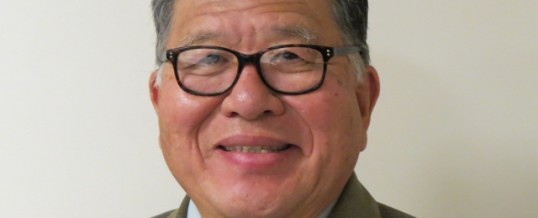
G Sakamoto
Jodo Shinshu, like all schools of Buddhism, is concerned with resolving the difficulties we cause and experience. As Buddhists we understand that difficulties result specifically from our likes and dislikes, our preferences, our prejudices. We also understand that if we work hard with diligence we can cultivate a mind free of prejudice and be free of difficulties.
As a Shinshu Buddhist the difficulties I cause and experience result from the same inability to see things as they are. It is the same inability that Shakyamuni addressed and prescribed practices that would cultivate the mind that sees things as they are.
If I experience no difficulties there is no need for the Buddhadharma. If I experience difficulties there are many ways to address and resolve those difficulties. The resolution of these difficulties can range from mowing an over grown lawn to genocide. The dharma’s response to difficulties is acknowledging my inability to see things as they are and then to cultivate the mind that sees things as they are.
The third Noble Truth, the truth of Nirvana, is the hope that Buddhism offers. The mind that sees things as they are, cultivated through the practices represented in the Eightfold Path, resolving the difficulties we cause and experience. This is the simple teaching of the Buddha.
However, I lack the skills to follow the path prescribed by Shakyamuni. That path and the practices that would cultivate the mind that sees things as they are are represented by the Eightfold Path.
Amida Buddha assures the people who lack the skills to cultivate the mind that sees things as they are that they too will be free of difficulties. Acknowledging my inabilities I am grateful for the assurance of Amida. This is nishujinshin, the two aspects of deep faith.
Whether I acknowledge Amida or not does not affect the work of Amida. Nor does my belief in Amida determine Amida’s existence. If Amida exists, Amida exists. If Amida does not exist, Amida does not exist. No amount of effort on my part will change Amida’s existence or non-existence.
Yuien recalls Shinran’s words in the second chapter of the Tannisho:
“I have no idea whether the nembutsu is truly the seed for my being born in the Pure Land or whether it is the karmic act for which I must fall into hell. Should I have been deceived by Master Honen and, saying the nembutsu, fall into hell, even then I would have no regrets.
“The reason is, if I could attain Buddhahood by endeavoring in other practices, but said the nembutsu and so fell into hell, then I would feel regret at having been deceived. But I am incapable of any other practice, so hell is decidedly my abode whatever I do.”
We often look for certainty. The only certainty Shinran had was continued difficulties without Amida’s assurance. If we consider Amida’s assurance as Shinran did how I see myself can change. Once we let go of uncertainty, Amida’s assurance can open up my understanding of myself. I might begin to see myself simply as I am.
AUG
